

2:30 am IST - 4:00 am IST
Past Event
Content from the Brookings Institution India Center is now archived. After seven years of an impactful partnership, as of September 11, 2020, Brookings India is now the Centre for Social and Economic Progress, an independent public policy institution based in India.
Brookings India hosted a public discussion on Rising Democracies and Implications for the International Order featuring Ted Piccone, Senior Fellow at the Brookings Institution and Latha Reddy, former Indian deputy national security advisor. The discussion was moderated by Dhruva Jaishankar, Fellow for Foreign Policy at Brookings India. The discussion focused on the future of five rising democracies — India, Brazil, South Africa, Turkey and Indonesia- and how countries like India can play an important role in shaping the future of the international liberal order.
Globally, there is great public support for democracy but dissatisfaction with the way it is working. There are also constant challenges to democratic practices, the rule of law, and human rights both in established and rising democracies. While democracy is imperfect, however, in general the trajectory over the last thirty years has been towards progress. Ted Piccone argues in his book Five Rising Democracies that India, Brazil, South Africa, Turkey, and Indonesia could offer important lessons for the compatibility of political liberties, economic growth, and human development.
An issue that came up during the discussion was that of economic liberalisation and how it has affected, not only economic trajectories of each of these countries but also their foreign policy. In his book, Ted tries to assess how these rising democracies will affect the international liberal order in their quest for greater role in the international system. In each of these countries, after liberalisation there was substantial progress in terms of political rights and freedoms, with civilians asserting their control over military institutions. Of late, we have seen some stagnation and backsliding in the progress. However, overall trends show that substantial progress has been made. These trajectories of these middle tier democracies particularly matter because of their role in the world and aspirations for soft power.
Increasing prominence of national and transnational civil society has been an important consequence of liberalization, which is also affecting foreign policymaking in rising democracies. As these societies open up debates on different issues, foreign policy too becomes the object of such debates, and the media, think tanks, and civil society in general have a voice in shaping foreign policy. Reaping the benefits of globalisation and liberalisation, these countries can be active supporters of liberal norms, albeit on their own terms.
Like other products of the Brookings Institution India Center, this report is intended to contribute to discussion and stimulate debate on important issues. The views are of the discussant(s), contributor(s) or author(s). Brookings India does not have any institutional views.
Event Report
Despite considerable progress in recent years, the future of democracy around the world looks increasingly uncertain. Established democracies in the West are falling victim to apathy, polarisation, and rising nationalism. Recent developments such as the attempted coup in Turkey and the impeachment process against President Dilma Rousseff in Brazil have raised new questions about the future of rising democracies. However, as Brookings Senior Fellow Ted Piccone argues in his book Five Rising Democracies, India, Brazil, South Africa, Turkey and Indonesia could offer important lessons for the compatibility of political liberties, economic growth, and human development. Filled with a data-rich analysis of recent progress—and setbacks—experienced by these five countries, the book contains practical recommendations for building a North-South consensus.
Brookings India held a discussion featuring Ted Piccone and former Indian deputy national security advisor Latha Reddy on the future of rising democracies, and how countries like India can play an important role in shaping the future of the international liberal order.
Ted Piccone spoke to Brookings India before the discussion on what democracies like India could do to preserve and promote a respect for democracy and human rights.
“I’ve written a book called Rising Democracies and the Fate of the International Order. We’re at a moment in time in world history in which we’ve seen tremendous progress in the spread of democracy and human right around the world, particularly in big important countries in the global South, but we’ve also seen trends that are very negative, where we’ve seen backsliding away from liberal norms. We’ve seen crises in countries like Brazil, a recent coup attempted in Turkey. We’ve also seen a crisis of confidence in established democracies, particularly in Europe with the exit of the United Kingdom from the European Union. These developments are causing a real concern to those who have been establishing a certain set of international norms, principles and mechanisms to protect democracy and human rights around the world. Those mechanisms are relatively healthy, particularly what’s happening at the United Nation at the Human Rights Council in Geneva. It’s provided a very important venue not just for debate but actual tools that are being used by civil society groups and governments to improve respect for international norms of human rights.
“There’s a good news and bad news story here: You have the rise of countries like India, Brazil, South Africa, Indonesia that have made tremendous progress since their transitions to democracies and also opening their economies, and that progress includes concrete imporvements in the lives of millions of their citizens when it comes to reducing poverty and addressing social and economic rights. This is a good news story.
“But more recently there’s been some backsliding. The question is, how will democracies work together to address these concerns. There are traditionally real divergences and conflicts between the north and south, but is there common grounds between democracies from the north and south in which we can create an eco-system that supports further democratisation and better respect for human rights.
“I’m relatively optimistic for most of these countries but more recently certainly events in Turkey demonstrate that we cannot consider democracy guaranteed or fully consolidated and that it needs constant attention and support and strengthening.
“On the other hand I’m very encouraged by the progress being made in Asia, particularly India and Indonesia, and it’s perhaps time for these countries to step up in their quest for greater leadership internationally and look at ways that they can contribute their own experiences in their own national context to support the general international towards greater respect for democracy and human rights.”
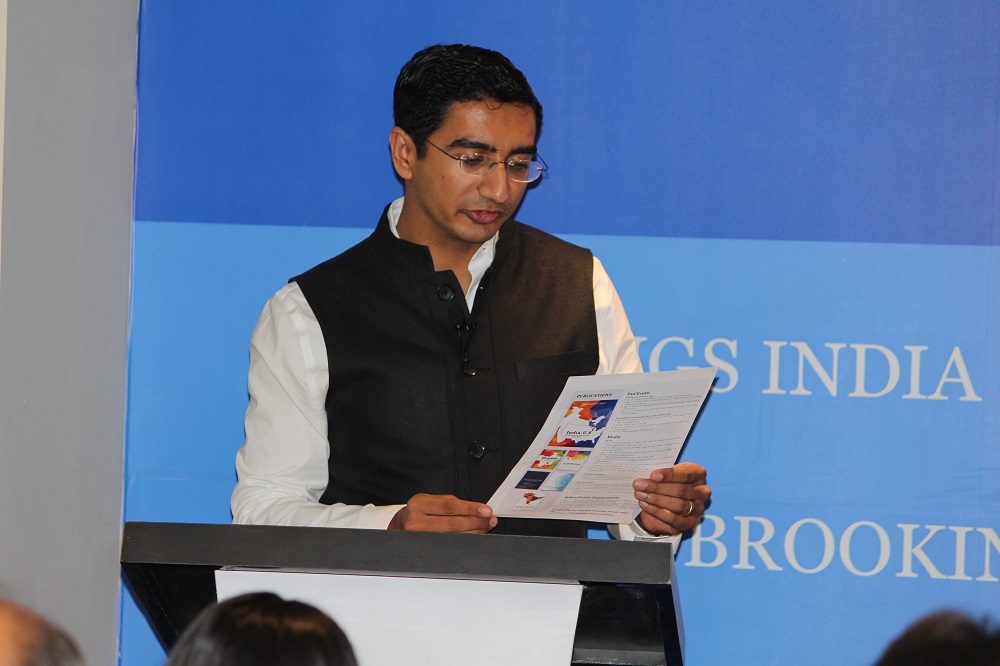
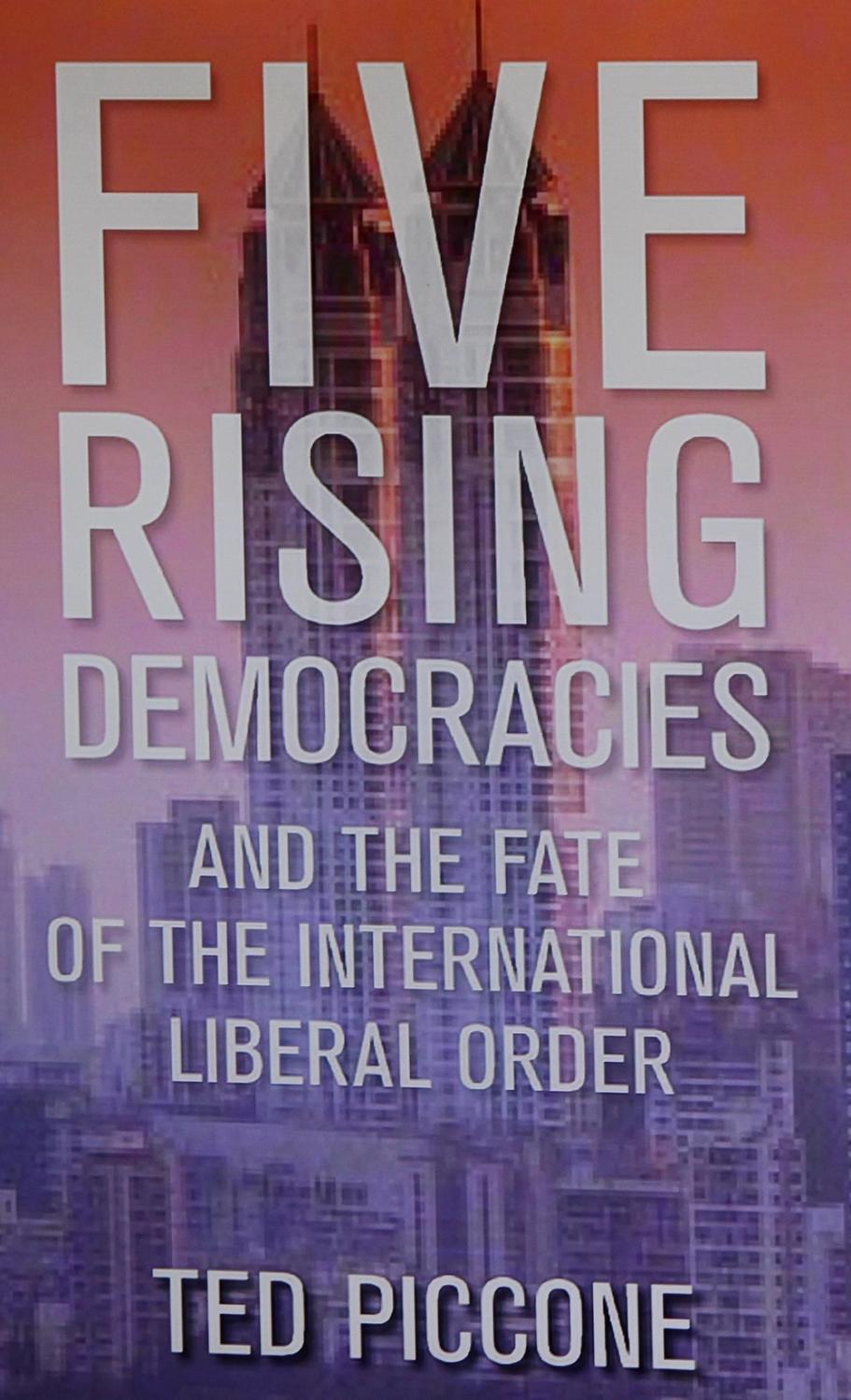
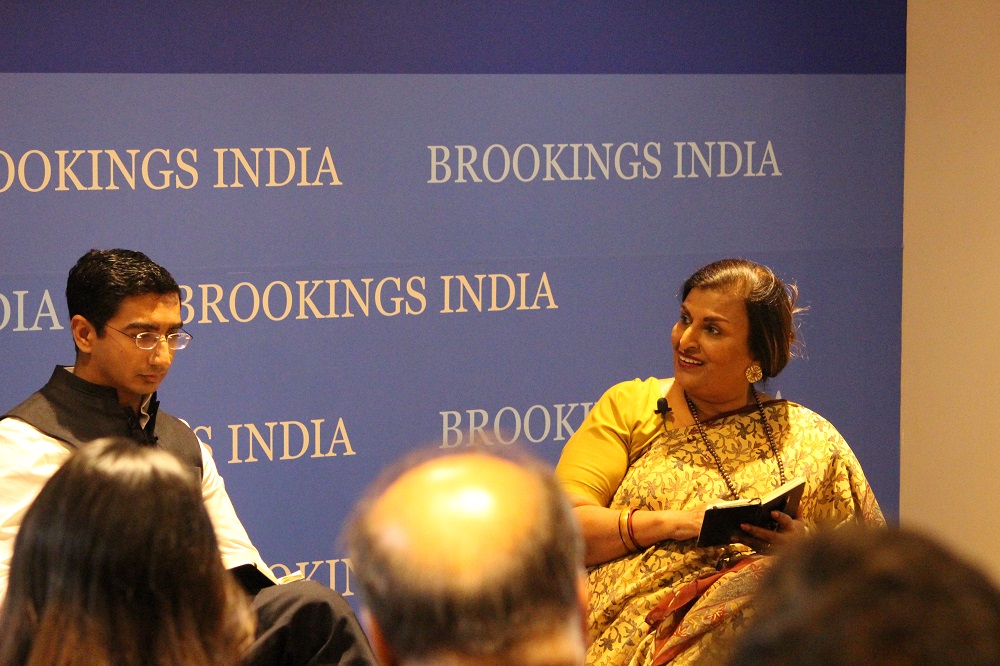
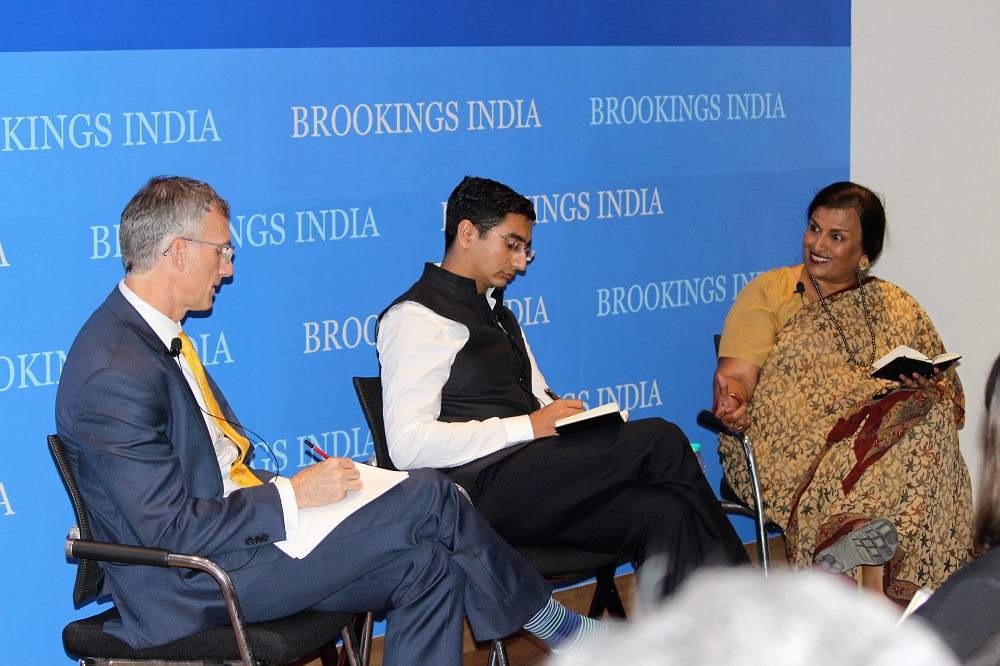
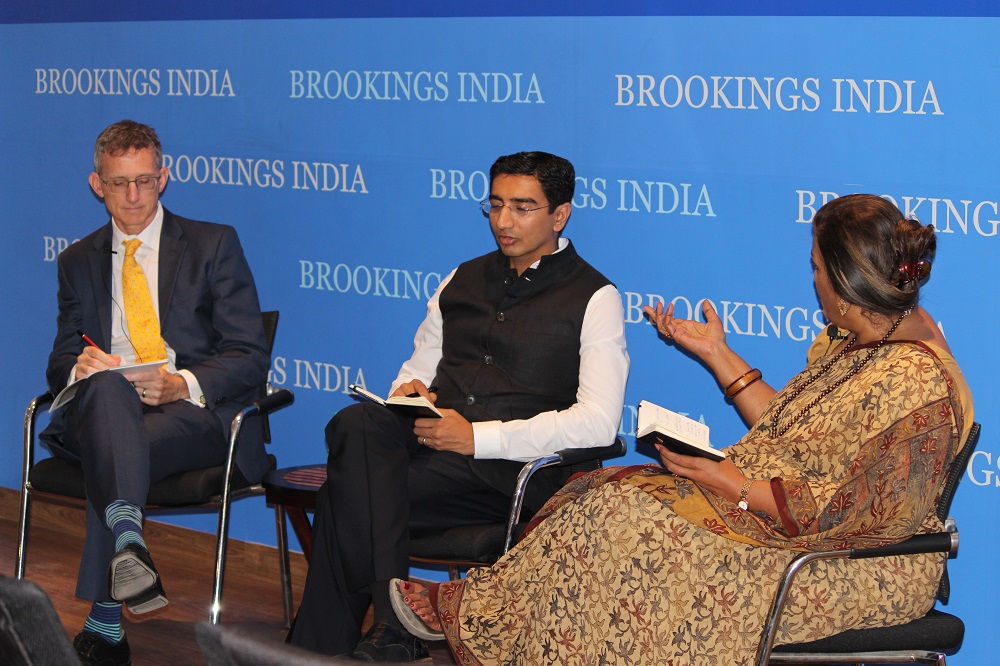
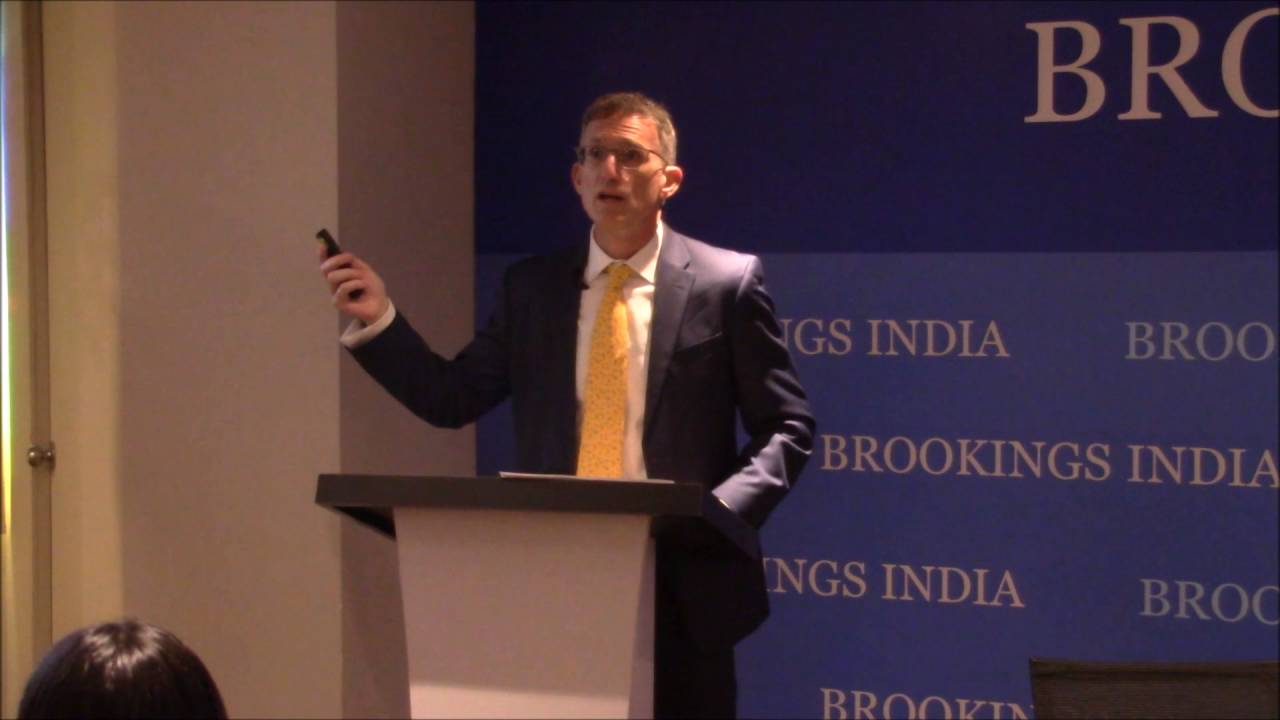
Speakers at the panel discussion
Ted Piccone
Senior Fellow,
Brookings Institution
Latha Reddy
Distinguished Fellow,
East West Institute
Moderator
Dhruva Jaishankar
Fellow, Foreign Policy
Brookings India
Like other products of the Brookings Institution India Center, this report is intended to contribute to discussion and stimulate debate on important issues. The views are of the author(s), discussant(s), panellist(s). Brookings India does not have any institutional views.

Rahul Tongia, Anurag Sehgal, Puneet Kamboj
2020
Online Only
Tuesday, 4:00 am - 5:40 am IST

Saneet Chakradeo
August 18, 2020